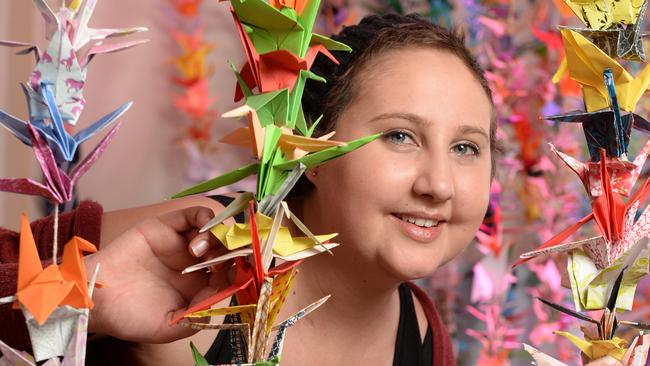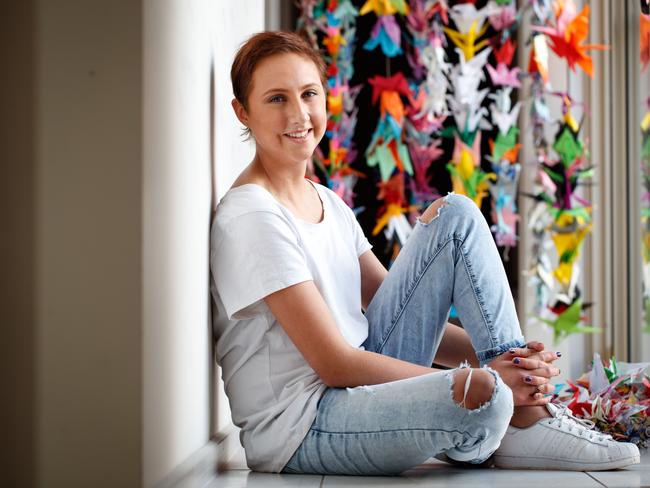Immune cells trial at Royal Children’s Hospital leaves woman free of leukaemia
THE first Australian to receive her own reprogrammed immune cells as part of a world-first clinical trial to treat leukaemia is now cancer free.

VIC News
Don't miss out on the headlines from VIC News. Followed categories will be added to My News.
THE first Australian to receive her own reprogrammed immune cells as part of a world-first clinical trial to treat leukaemia is cancer-free, 14 years after she was first diagnosed.
Royal Children’s Hospital oncologists treated Lauren Krelshem, 21, with the new CAR T-cell therapy, which makes the cancer cells visible to the patient’s immune system for the first time.
The treatment’s pioneer, University of Pennsylvania professor Carl June, told the International Congress of Immunology in Melbourne this week that with the technique working in 93 per cent of acute lymphoblastic leukaemia patients treated over the past four years, they were now testing it on solid tumours.
The treatment works by extracting a patient’s immune cells, genetically engineering these T-cells to recognise a molecule of the surface of cancer cells, and reinfusing them into the blood.
Prof June said with 110 CAR T-cell clinical trials being run internationally, it was expected to be approved for use outside clinical trials in the US from next year.
“We’re finding it could be just one cell the patient needs,” Prof June said.

More Victorians will have access to this experimental treatment when further clinical trials open later this year for adults with acute myeloid leukaemia, and next year for children with acute lymphoblastic leukaemia.
Just over a year ago, Ms Krelshem, of Adelaide, was told palliative care was her only option.
Since being diagnosed with ALL at age seven, she has endured chemotherapy, a bone-marrow transplant and an experimental immunotherapy drug. Still, the cancer returned.
Tests last week confirmed there were no cancer cells left in her body.
“I’m pretty hopeful this will be a cure,” Ms Krelshem said.
“I’m getting back to normal life and finally starting to pursue all my dreams.”
But the treatment is no easy fix. It can cause a life-threatening toxicity more severe than chemotherapy, which killed three patients in the US trial.
Ms Krelshem was one of four patients enrolled in a Melbourne trial over the past year.
One patient could not be treated before the trial closed, and two patients died before they could receive the infusion.


